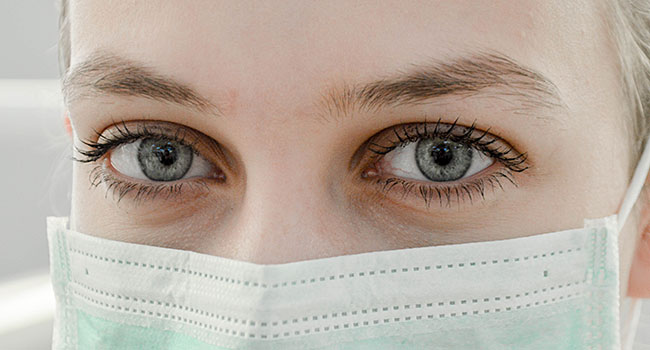Coronavirus-Detecting Face Mask On Its Way
May 13, 2020 by Iris Dawn TabangcoraWith no specific drug or vaccine yet in sight, countries struggle to contain the fast spread of coronavirus. Health authorities emphasize the importance of handwashing and staying at home to break the cycle of infection. However, for necessary trips outside, the use of face masks has been a simple yet effective way of protecting one's self. It is no surprise that in the search for novel ways to detect the virus, this personal protective equipment would be utilized.

Photo credit: Ani Kolleshi on Unsplash
Scientists from Harvard and MIT are developing a face mask capable of detecting coronavirus. When a person with COVID-19 coughs or sneezes nearby, the face mask would emit a fluorescent signal and light up alerting the person of possible transmission. This technology will help flatten the curve and make detection of viruses easier for healthcare workers in the frontlines. This is the same group of scientists who have come up with the same technology but for Ebola and the Zika virus.
Its potential for screening is huge considering that temperature checks in public places as a form of screening come with considerable flaws especially among asymptomatic carriers and those with presenting symptoms that don't include fever. Even hospitals could benefit from this new technology when they screening in-coming patients. More importantly, it could facilitate the diagnosis of the disease without needing to send lab specimens which can take time and require more resources.
While the ongoing study is at its early stage, researchers are convinced that progress has been promising. The sensor technology was already proven when it was used for the detection of other viruses. Sensors placed on the inner surface of the mask would be able to detect the presence of the virus when an infected person coughs or sneezes. Another option would be to develop a module that could be attached to any type of mask.
So how does the technology works? The sensors contain genetic materials that would bind to the virus. Using a machine called lyophilizer, genetic materials are freeze-dried to the fabric. It then sucks the moisture out of the genetic material without killing it. The sensors would then detect the virus's genetic sequence and would emit a fluorescent signal measured by a device called fluorimeter. It would only need a small portion of the virus's genetic sequence to spot it and the face masks are expected to give signals within one to three hours. This is a significantly shorter timeframe than current diagnostic tests.
Researchers also claim that this breakthrough in synthetic biology would detect more cases as it is specific to the identification of the virus rather than the symptoms. The goal is to make this available for the public by the end of summer. Indeed, these sensors will offer a cheaper, quicker, and more sensitive form of detecting coronavirus.
Next »
Signup to be notified of clinical trials near you that match your condition
Signup and be matched to trials near youThis free service will notify you of current and future clinical trial matches.
